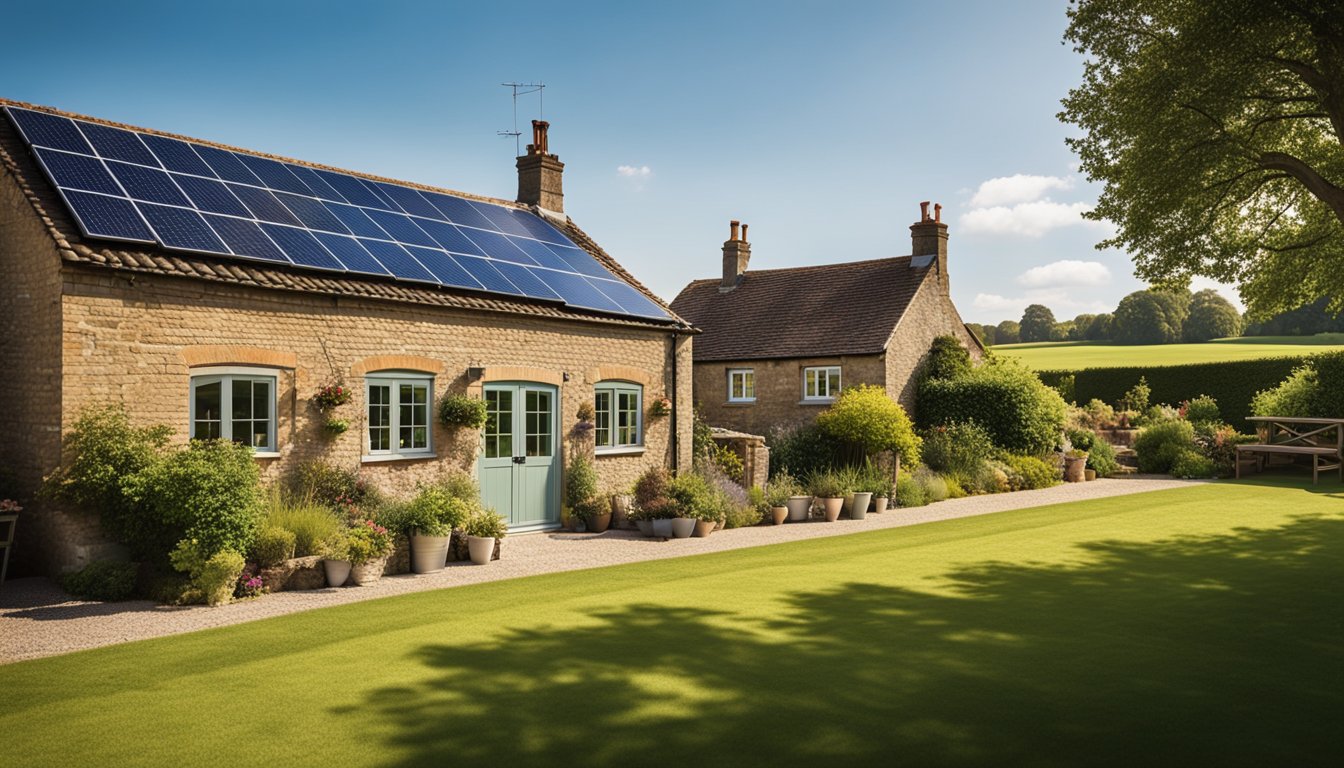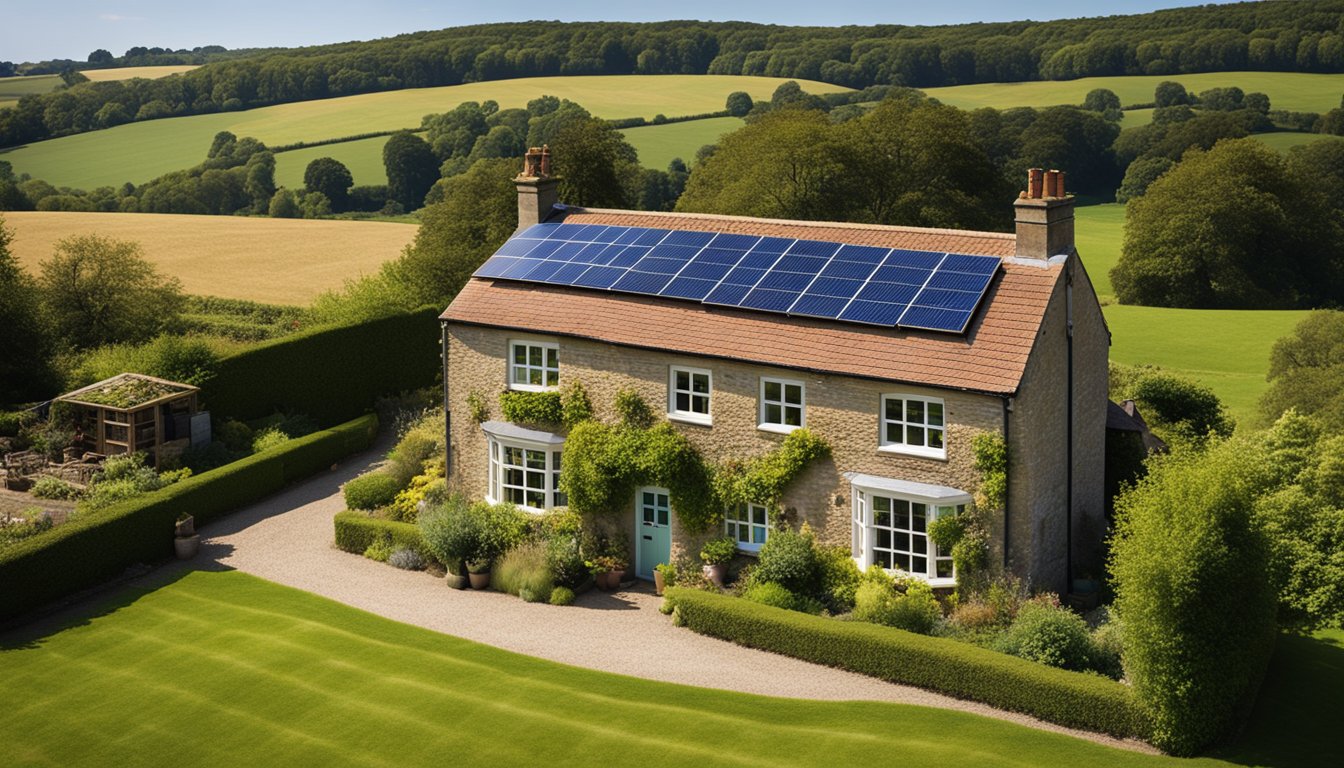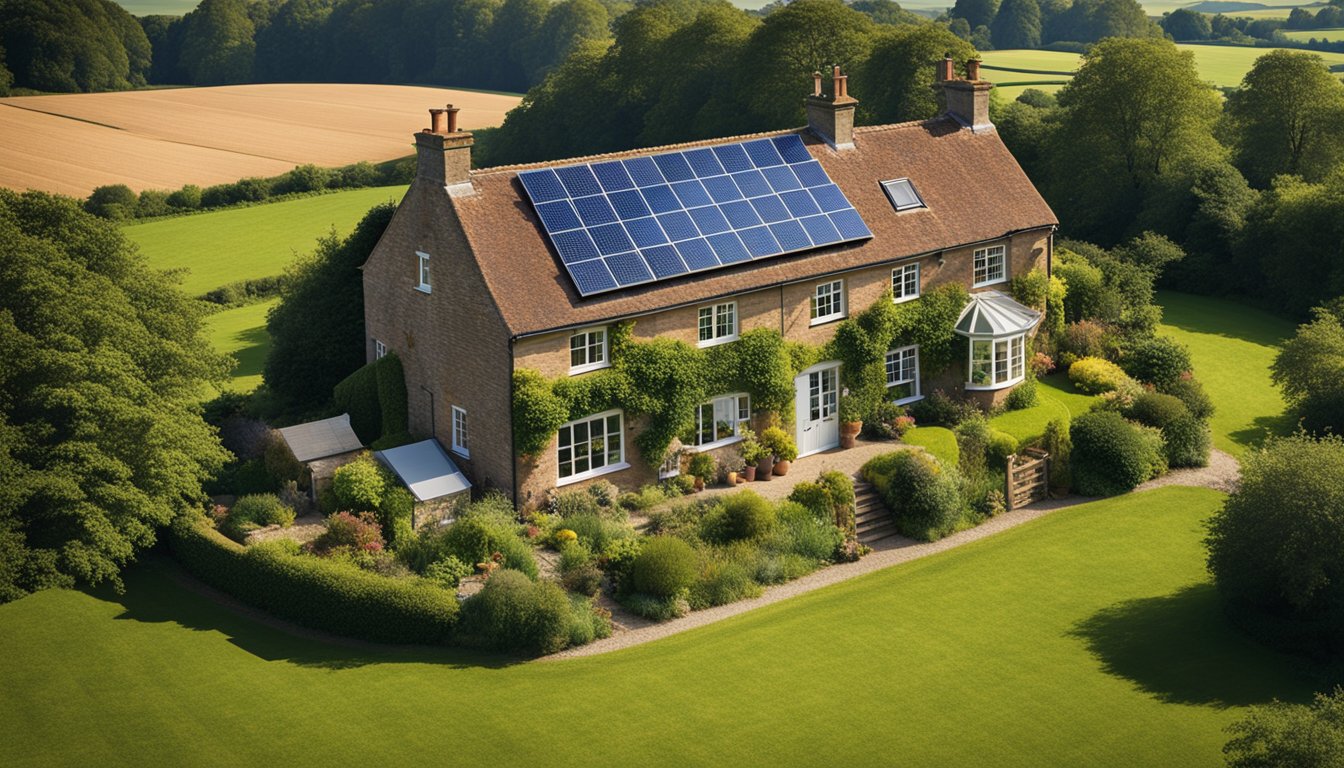Late updated: 14 Sep 2024 13:09
Written by: Oliver Bennett
Best Solar Solutions For Rural UK Homes: Efficient and Sustainable Energy Options
Harnessing the power of solar solutions in rural areas of the UK is no longer just an environmental ideal but a practical reality. Rural homes often face the dual challenge of limited access to traditional power grids and the high cost of energy consumption. Adopting solar technology transforms these challenges into opportunities, offering a sustainable, renewable energy source that enhances energy efficiency while reducing utility bills.

Our exploration focuses on the best solar solutions tailored for rural UK homes, taking into account factors such as local climate, roof space, and specific energy needs. The evolving landscape of solar technology offers more efficient systems, which means a higher return on investment for homeowners. With incentives available for switching to clean energy, there's never been a more advantageous time for rural residents to consider solar power.
Achieving energy independence through solar technology not only contributes to sustainability but also aligns with the growing trend towards self-sufficient living. The diverse range of solar panels, with variations in efficiency and cost, allows us to select the optimal system for different household requirements. As we navigate the various options and considerations, it becomes clear that solar power isn't just a possibility – it's a perfect fit for rural UK homes.
Key Takeaways
- Solar energy offers sustainable power solutions for rural UK homes.
- Efficient solar panel systems provide high returns and energy independence.
- Financial incentives make adopting clean energy more attractive.
Evaluating Solar Panel Systems for Rural UK Homes

In rural UK settings, selecting the appropriate solar panel system involves considering efficiency, installation challenges, and equipment choices. Each factor plays a vital role in ensuring reliable energy production.
Understanding Solar Panel Efficiency
Efficiency is key. It determines how well a solar panel converts sunlight into electricity. Highly efficient panels like the SunPower Maxeon 6 AC and the JA Solar JAM72S30 LR 585W offer excellent energy production. Efficiency impacts how many panels we need and how much space they require.
When choosing panels, we must check the temperature coefficient. This measures the drop in efficiency with rising temperatures. Reliable panels maintain efficiency even during the UK's mild summer temperatures. Emphasising product warranties and performance warranties is also crucial to ensure long-term reliability.
Overcoming Geographic and Climatic Challenges
Rural areas present unique geographic challenges. Many homes are surrounded by trees or have rooftops that face less-than-ideal directions. Panels with strong low-light performance are crucial for these conditions. Options like the Aiko ABC Neostar 3N54 495W can provide good outputs even in shade or cloud cover.
We should assess the typical sunlight exposure and identify potential shading issues. Roof direction analysis assists in making the most out of available light. During installation, these factors must be addressed to maximise performance and maintain low energy bills.
Installation and Equipment Selection
Choosing the right installer is vital. Expertise in handling rural installations, such as mounting on thatched roofs, ensures systems are correctly set up. Our focus should be on selecting robust equipment that can withstand rural conditions. Panels like the Perlight PLM-435 and REC Alpha Pure RX are known for durability.
The inclusion of a suitable inverter and options for solar battery storage should be considered to match electricity demand with production. System size must align with our energy needs, ensuring the panels we choose can handle expected usage while offering effective cost management.
By carefully considering these factors, we can ensure efficient and reliable energy for rural homes.
Financial Incentives and Environmental Impact
We must consider both the financial benefits and the positive environmental effects when exploring solar solutions for rural UK homes. Let's examine available government schemes, the economic benefits of solar energy, and the environmental reductions that can be achieved by adopting solar power.
Government Schemes and Solar Grants
In the UK, government schemes and solar panel grants offer significant financial support to solar panel owners. The Smart Export Guarantee (SEG), for instance, compensates homeowners for excess electricity generated and fed back to the grid. With the ECO4 scheme, support is extended to households in making energy-efficient home improvements, potentially including solar power systems. These incentives not only help reduce the initial investment but also optimise return on investment for rural homeowners.
Calculating Costs and Savings
Understanding solar panel costs and potential energy savings is crucial. A typical 4-kW solar panel system can initially cost around £9,460. Though this might seem steep, the ongoing energy savings offset the initial expense. Solar PV systems often result in annual savings exceeding £300 by reducing electricity bills. With energy costs having significant variability, the reduced ongoing costs and faster return on investment make solar power a viable option for many.
Reducing Environmental Footprint
Solar energy plays a vital role in reducing our carbon footprint. By adopting renewable electricity, we can contribute to the UK's aim of achieving net zero emissions. Solar PV systems and ground-mounted solar panels can make a substantial difference by providing clean energy, drastically cutting down on pollutants. Additionally, integrating solar batteries and energy storage systems boosts the sustainability of our homes, further diminishing reliance on non-renewable power sources.
Incorporating these technologies allows us to play our part in protecting the environment while enjoying financial gains from reduced energy costs.
Frequently Asked Questions

In rural UK settings, solar energy can significantly reduce electricity costs and promote environmental sustainability. Let's address common questions about solar solutions in these areas.
What are the most efficient solar panel options for homes in rural areas of the UK?
For rural homes, we often recommend monocrystalline solar panels due to their high efficiency and performance in limited spaces. They work well even in less sunny conditions, which is beneficial given the UK's varied climate.
How do government grants in the UK support residential solar panel installations?
Government grants like the Home Upgrade Grant provide financial support to low-income households for solar installation. Such schemes help reduce initial costs and make solar energy more accessible. Regional programs like the Nest scheme in Wales and Home Energy Scotland also offer support.
What are the expected costs of installing a solar power system for a home in the UK?
Installing a 4kWp solar system in the UK typically costs between £5,000 and £8,000. This can vary based on factors such as roof type and system complexity. Government incentives can significantly offset these expenses.
Which solar panel brands are considered the most reliable by UK consumers?
Brands like LG, Panasonic, and SolarWorld are frequently chosen for their reliability and efficiency. These manufacturers have established reputations for producing durable panels with solid warranties, offering peace of mind to consumers.
How much energy can a typical 4kW or 5kW solar system generate for a UK home?
A 4kW solar system can generate approximately 3,400 kilowatt-hours (kWh) annually, while a 5kW system can produce around 4,250 kWh. These figures assume optimal conditions and can vary based on location and panel orientation.
Does investing in solar panels provide significant energy savings in regions like North East England?
Yes, investing in solar panels can lead to substantial energy savings. Despite the less sunny climate, solar systems can produce considerable electricity and reduce reliance on the grid. Over time, this investment often pays back through lower energy bills and potential income from exporting surplus energy.
